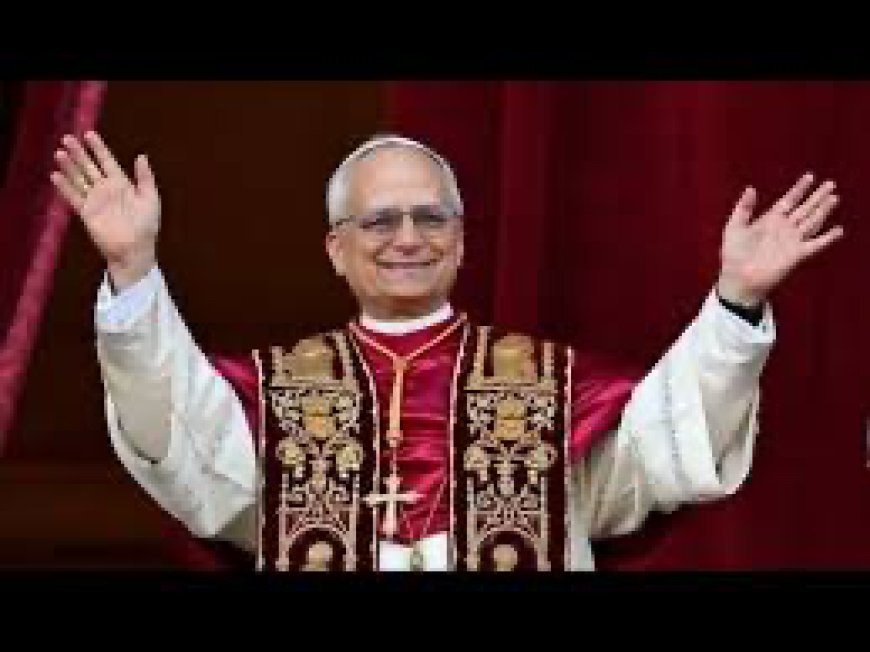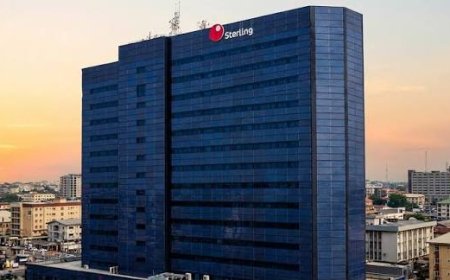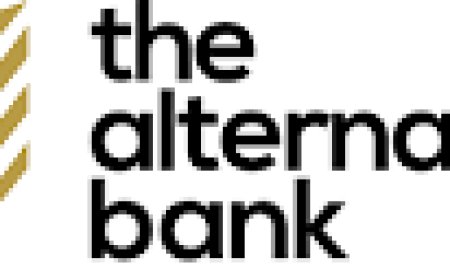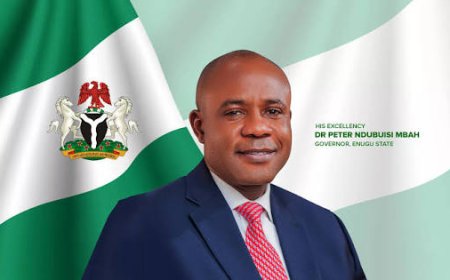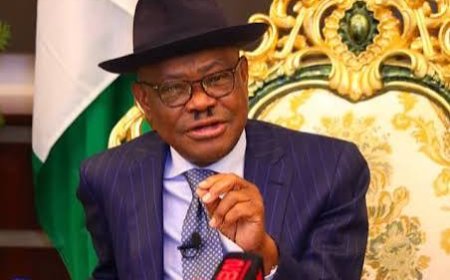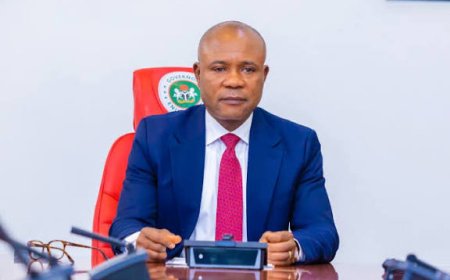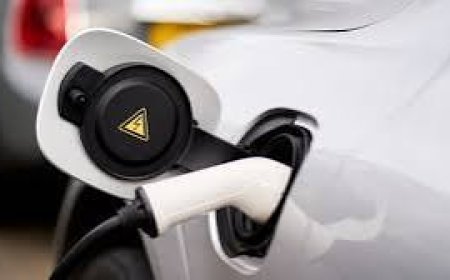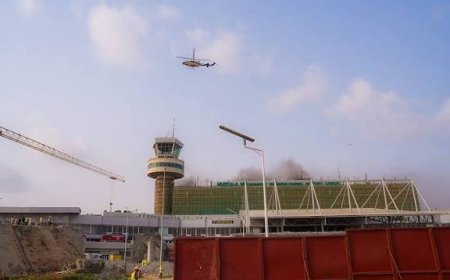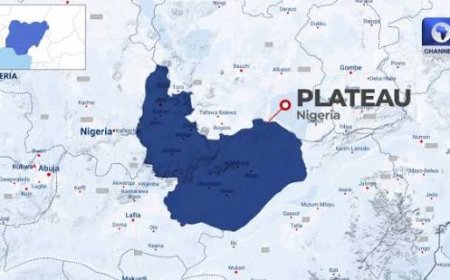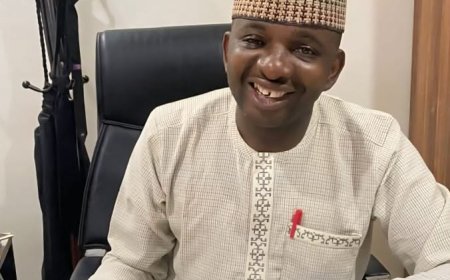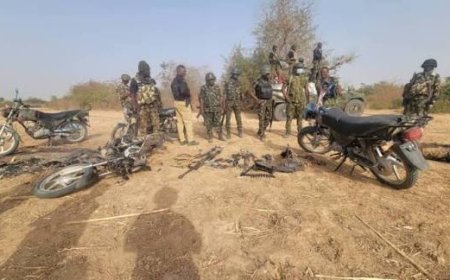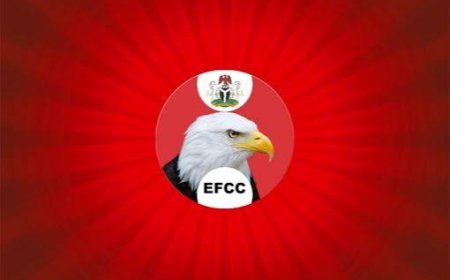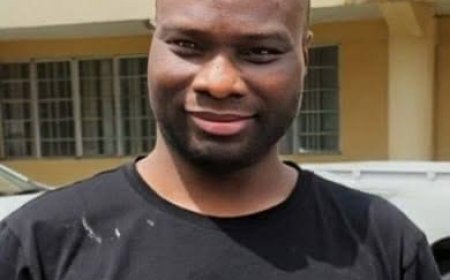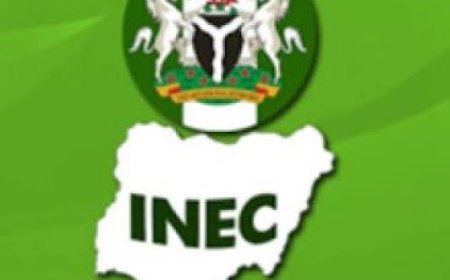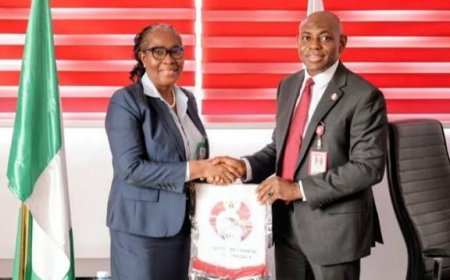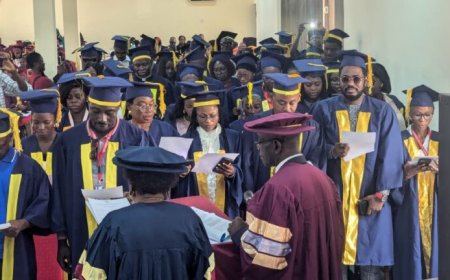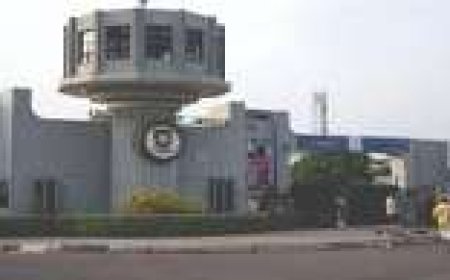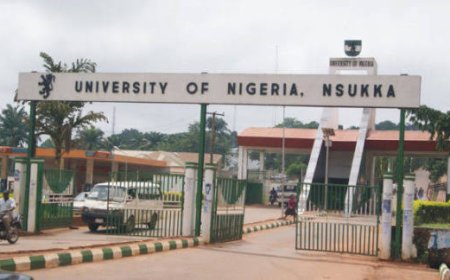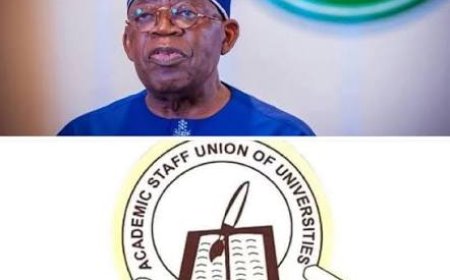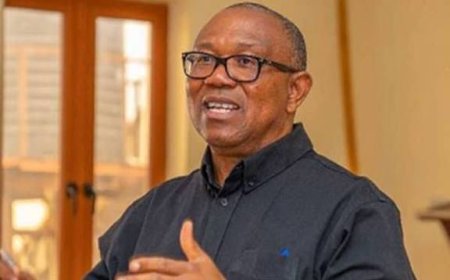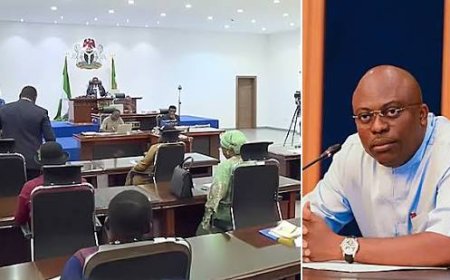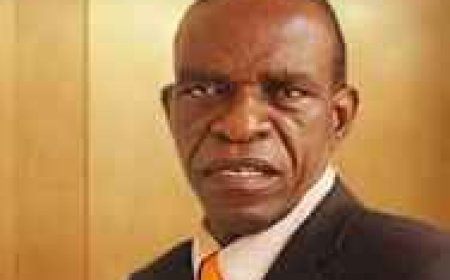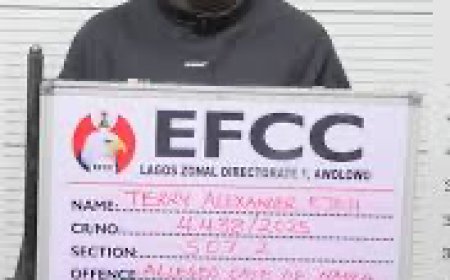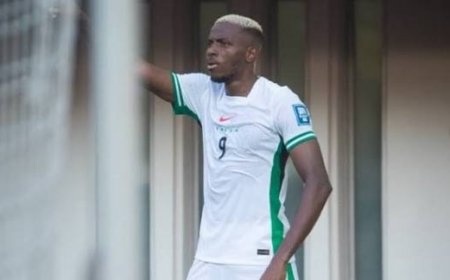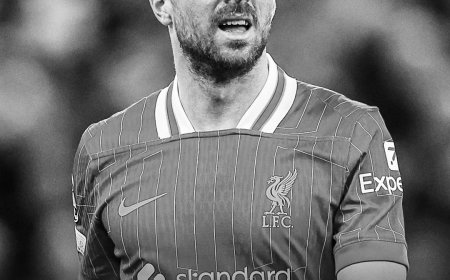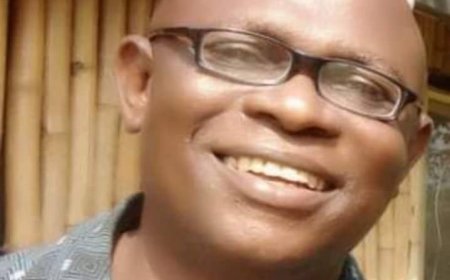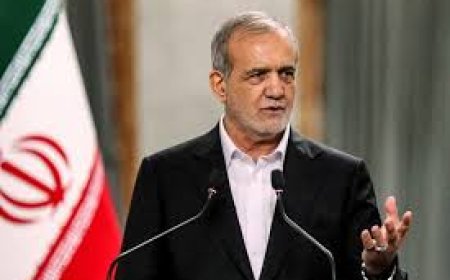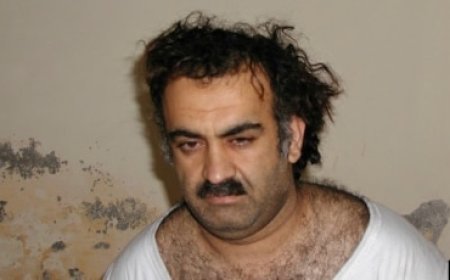By Ike Abonyi
“ _The bishop is not supposed to be a little prince sitting in his kingdom, but rather called authentically to be humble, to be close to the people he serves, to walk with them, to suffer with them, and to look for ways that he can better live the Gospel message amid his people.” -Cardinal Robert Prevost now Pope Leo XIV
Is the Catholic Pontiff, Pope, a spiritual or a political leader? This intriguing question is my subtle way of interrogating the recent conclave in Vatican City that produced the American Cardinal Robert Prevost as the 267th Pope, whose Papal name is Leo X1V. By his inauguration last Sunday, he heads the 1.4 billion-member universal church.
As a Catholic, my direct answer to the question which will form the basis of this conversation is that the Pope is supposed to be a spiritual leader, going by the scriptural history that brought the position into existence. A Pope is a vicar, a presbyter of Jesus Christ who was purely spiritual and never political in all his activities while on earth. Even while on earth, when the people attempted to enthrone him as King, he dodged it because his Kingdom was different from theirs.
Even after his death and resurrection, Jesus was never political. Ditto his apostles led by Peter. The scripture didn’t show any of his apostles being political in deeds and outlook, not even Paul, who was very political, as Saul before his arrest on the way to Damascus was political after his transformation. So, why is the contemporary vicar of Christ becoming too political, as evidenced in both the death of Pope Francis, the Conclave that produced his successor and his inauguration?
Conspicuously, present day, voguish occupant of Peter’s chair, the later day Popes are becoming even more political at the expense of the spirituality of their duties.
Last Sunday’s Pope Leo XI inauguration was more political than spiritual. World leaders were falling on top of each other to be captured by the camera, shaking hands, and not getting blessings. Even those whose missteps as leaders in their countries are causing great havoc to humanity, copiously occupied the front row to have a handshake with the successor to Saint Peter.
The most visible defence of Pope’s political status is on the Sovereignty of the Vatican City State. The Pope is the head of state of the Vatican City, a sovereign city-state located within Rome, Italy, with diplomatic relations with over 180 countries. The Pope engages in international diplomacy, promoting peace, human rights, and social justice, and has a significant influence on global affairs.
He embarks on teachings and statements that shape public opinion and influence policy decisions on issues like poverty, inequality, and human dignity, as already underscored by Pope Francis and now continuing by Pope Leo XIV.
The dual Spiritual and Political Roles for the Pope require a delicate balance. While the Pope's primary focus should be on spiritual leadership, their political influence and diplomatic efforts can have significant impacts on global issues and international relations.
The World today see the Pope as the political head of a tiny country known as the Vatican more than as the direct representative of Jesus Christ on earth.
As a Catholic, one tries to get elated at the growing fame of the church as a result of this political stardom, but on a deeper reflection, it raises concerns about the future of the church.
The last three conclaves that produced the last three Popes, Benedict XVI, Francis, and the incumbent Leo XIV, appear to have opened the Catholic Church too much into international politics, which a deep reflection mirrors a worrisome development about the future of the Church. The huge interest shown in the church’s activities during and after the conclave, courtesy of social media, obviously enhanced by communication technology, raised some concerns about the spirituality of today’s papacy. To what extent is the huge international influence of the church helping the spirituality of the church, which should be its primary responsibility?
Was the tension and anxiety generated for the election of a new Pope necessary? If yes, for what purpose, political or spiritual concerns?
Should a Pope even be elected? Was Peter the first Pope elected? Were the Apostles elected? Even after Jesus left, did the Apostles replace Judas with Matthias through election? Even in the Old Testament, didn’t God warn the Israelites against replacing their Judges with Kings? Are our contemporary Popes not turning into Kings, and more inaccessible? The World is changing, they will argue, but who is doing the changing, God or man?
Ahead of the Conclave, was the spirituality of the new Pope the issue or how a new Papacy will follow the liberalisation of the church away from what is in the scripture. Was it not disgusting that what was dominant as a factor ahead of the conclave was issues like same sex marriage and the wish of the West for the church to endorse it.
This is the same West that is closing down its churches and converting them to night clubs and social event centres.
If we are to be privy to the high-tech intrigues that trailed the last conclave, we should know that the politics for the next conclave have begun already. The Church is growing in Asia and Africa and shrinking in Europe and America, yet nobody thinks of a Pope from there because it’s not about spirituality but international politics, where these continents are perpetual underdogs.
The main agenda that dominated the last conclave and which eventually influenced the election is on whether to go ahead or not with Pope Francis's so-called liberalisation of the church. What do they mean by being a liberal church? Accepting that some unscriptural things, like gay marriage, should be accepted by the church because the West tags it a human rights issue. All the eulogies the West had for Pope Francis are not related to his spiritual work but to his failed attempt to get priests to bless same sex marriage with the argument that they’re also children of God. But our beloved Pope John Paul II had them in mind when he said that ‘Stupidity is also a gift of God, but one mustn't misuse it’
The fear is that as conservative and disciplined as the Catholic Church might be, the way things are going, the future Pope will be hoisted on the church by non-Catholics and even non-Christians. The Papacy is tilting too much towards international diplomacy rather than the religiosity of their office, and they should watch it.
The Christendom will like to see a Papacy of faith where a Pope will be more infallible than an overwhelming international figure whose name is being mingled alongside dubious and integrity-challenged political leaders.
Consequences of this are far-reaching because some so-called liberal Bishops in various countries will abandon their primary duties of shepherding their flock as directed by Christ three times to Peter ( feed my sheep) and will be busy seeing themselves romanticising with Kings, Governors, Ministers and Presidents, leaving the church lectern for political pulpits.
Everything is wrong when a Pope, Bishops and Priests who are there to help us find salvation through Christ become inaccessible by their deeds to the extent that the worshippers find Christ more accessible than them, through the Eucharist.
Perhaps at the root of all these is the recruitment model for a Pope. Should a Pope be elected? To what extent is the Holy Spirit allowed to sway a conclave given the intrigues and the biases that stem from picking the electors, the Cardinals?
Why should a Pope, the highest Christian office in the World, a successor to St Peter, be elected? Why should politicians in various countries be urged by priests to take issues calmly and divinely and stop fighting for power when the World watch the intrigues that preceded the conclave? No matter the pretence, some Cardinals left the conclave sad and disappointed after their candidate failed.
When Pope Francis appointed 100 out of 133 cardinal electors, why should anybody be surprised at the outcome being pro-Francis?
I think all over the World, elections are a problem and countries conducting elections frequently to pick leaders in the name of democracy have not developed faster than those who do not conduct elections.
In Nigeria, election is our main bane as a nation, even in the churches, the divisions experienced in various parishes stem from elections arising from various associations and even pious societies. The Catholic Church in Nigeria recently ruled for a one-term of three or four years for positions as a response to incessant bickering among parishioners over elections.
What this discourse aims to achieve is to draw the attention of the new Pope to the enormous challenges before him and which he will need to navigate. Like addressing the differing views within the Church on issues like divorce, remarriage, and LGBTQ+ rights based on scripture, not fantasy human rights advocacy. This is what the Pope can only do if he has a deep commitment to the faith and the Church's doctrines, with an ability to inspire and guide the Church, making informed decisions and promoting unity. May the Holy Spirit, the Paraclete, be the guide of the new Pontiff. Amen.
